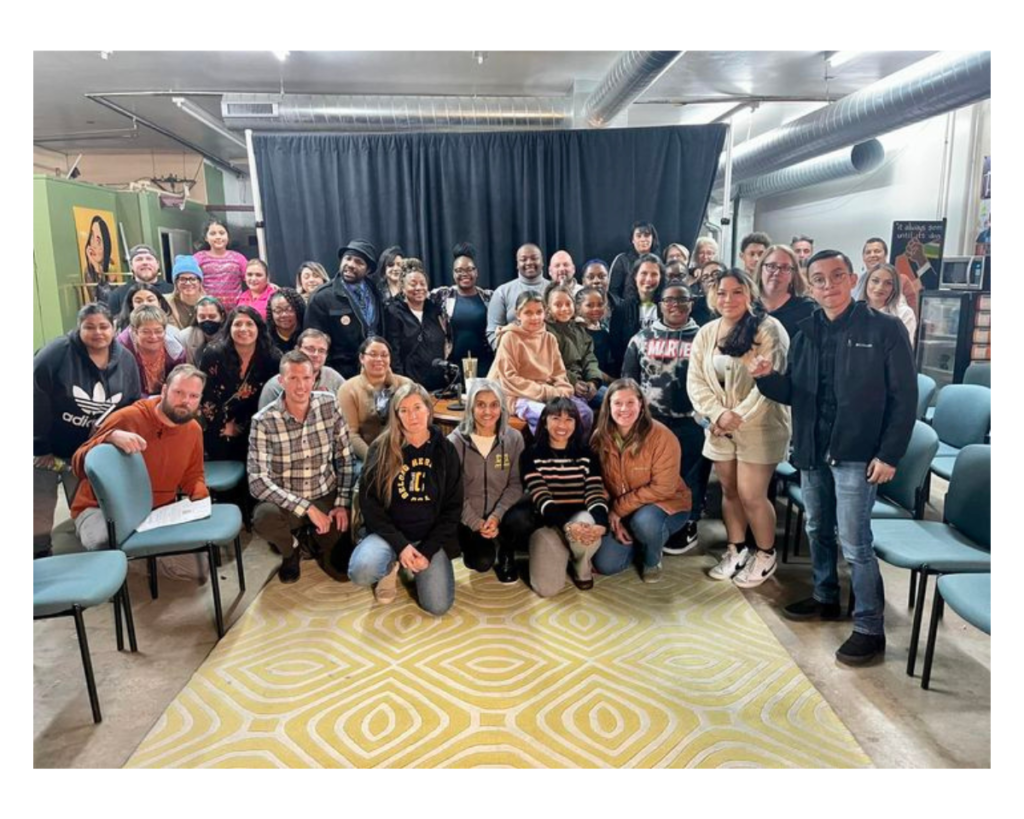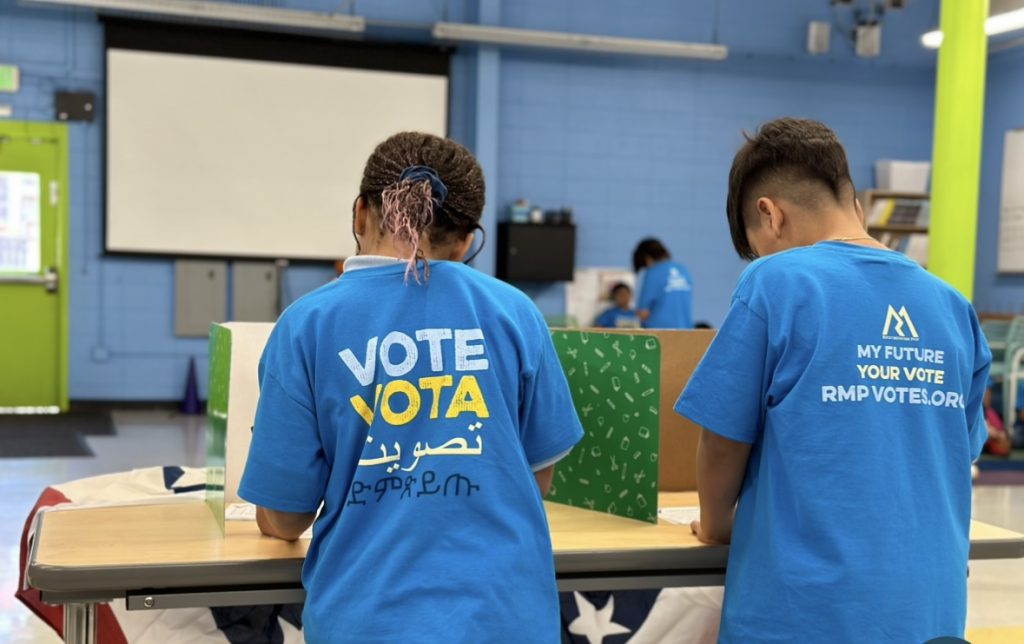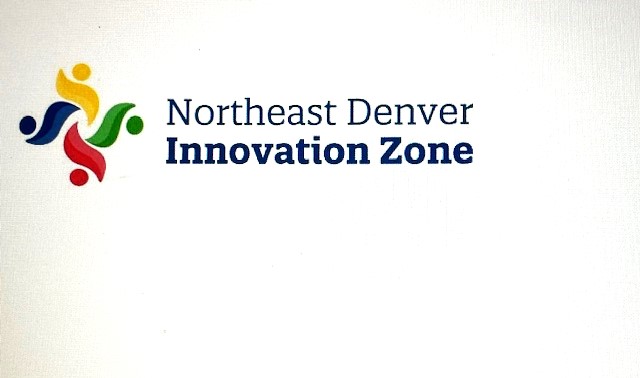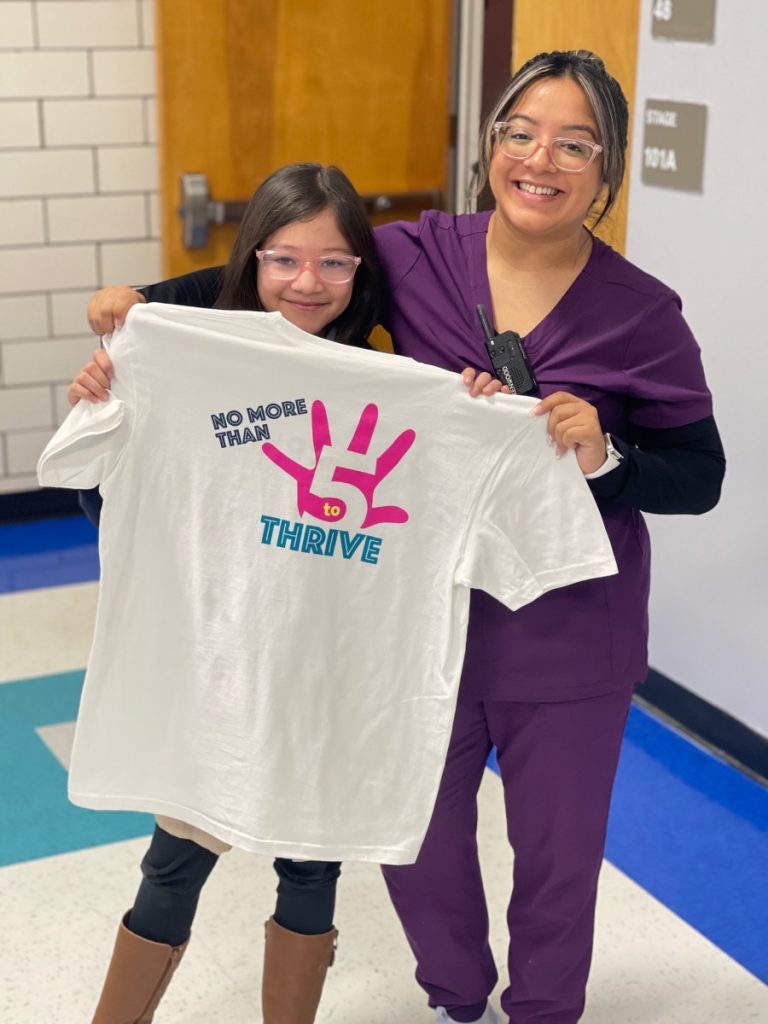It became clear at Monday night’s community meeting about proposed Denver school closures that a revolt is brewing on the school board that is likely to send Superintendent Alex Marrero and his team back to square one as they try to “right-size” the district.
About 75 people – many of them parents, teachers, principals, and kids – packed into Brother Jeff’s Cultural Center in Five Points to vent their frustration over the lack of a community process ahead of the late October announcement that 10 schools should close at the end of the current school year because district enrollment is declining.
Denver’s two at-large school board members – Auon’tai Anderson and Scott Esserman – called the meeting. They both made it clear that they would be voting next week to rescind the small schools resolution that set in process the move to close schools. And they expressed confidence that they could muster at least the four votes needed to make that happen.
It was a high-spirited event. The crowd, mostly people affiliated with the 10 schools, was a diverse group, from all corners of the city. They were united in opposition to the closures.
Esserman repeatedly apologized for the botched process to date, and pledged that going forward, it will be “community led and district supported.” He also said any move to close schools would be done with community rather than to community.
Esserman and Anderson were highly critical of Marrero’s handling of the situation to date, though they also absolved him of direct blame. Anderson said the closure conversation had been initiated by the previous school board (of which he was a member) and administration, and that Marrero was simply following the dictates of the resolution.
If the board rescinds the resolution, which appears likely, it’s unclear what happens next, other than a new process will have to begin. This makes it highly unlikely that any schools could be closed at the end of this school year. This has significant budgetary implications.
A district slide presentation last week showed that subsidies to keep the 10 schools open costs about $5 million per year. That $5 million, the district said, keeps the schools functioning, but in a bare-bones way, without “providing enhanced experiences for students and adults.”
District critics said at the meeting that the $5 million, and much more, could be stripped from what they called a bloated central office. How that might happen is unclear.
Parents and educators from the 10 schools made impassioned cases for keeping their buildings open. Fairview, in Sun Valley, is targeted for closure despite the fact that hundreds of new subsidized housing units are coming online early next year. There will be plenty of kids to fill the school, one parent said.
Palmer Elementary School is highly diverse and provides a great environment for students and staff alike parents and teachers said.
Whittier, where generations of Black children have attended, is a pillar of Denver’s Black community and must not be closed, several speakers insisted.
People from different schools pledged to support one another’s efforts to keep their schools open. Anderson said it is a feature of “white supremacy culture” to force people of color to fight over scraps. The days of fighting each other rather than the powers-that-be are over, he said.
The two board members urged the crowd to flood the Nov. 13 board public comment with people advocating for the 10 schools. This will help pressure other board members to support rescinding the resolution, they said. Anderson said he hopes so many people sign up (the deadline is Nov. 10) that the session goes until dawn.
He also said the board should support any school that wishes to remain open, as long as the schools “100 percent understand the risks, we should figure out ways to support them financially.”
Anderson and Esserman said they drew energy and inspiration from community meetings, even though they have been criticized by board President Xóchitl “Sochi” Gaytán for ignoring board protocols by convening such gatherings.
“I hate going into 1860 Lincoln (DPS central office). I hate it with a passion. I like being in community and I like being in spaces where people are able to engage with us,” Anderson said.




